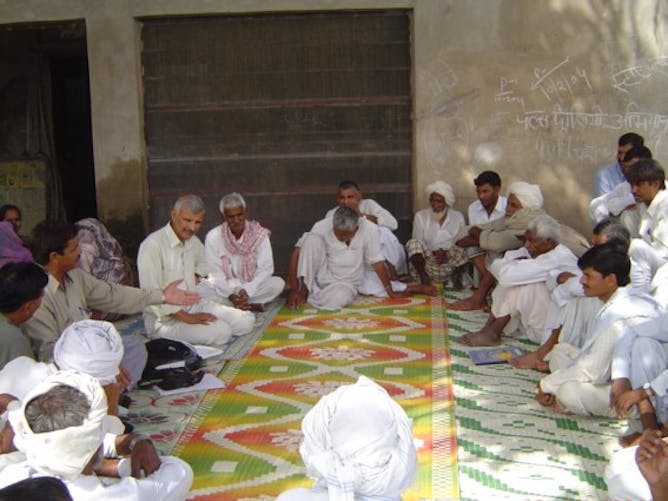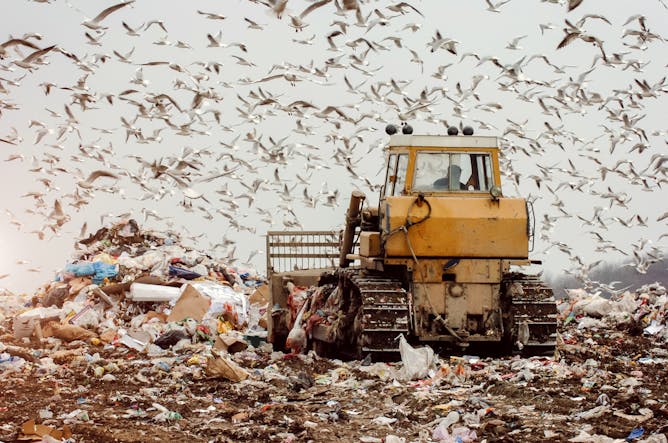|
International conciliators have failed to bring peace between India and Pakistan. This is mostly because they have little awareness of the indigenous psychology of the emotionally charged region. For their part, local people have turned to the successful panchayat system of justice. Jawad Kadir explains why this system works despite being in contrast to universal principles of equality.
Think again before handing out plastic-wrapped snacks for your children today. Single-use plastics have been getting a lot of press recently, for good reason. Investigating the stomachs of 41 garbage-eating gulls, Sahar Seif of Carleton University and Jennifer Provencher of Acadia University found a shocking 284 pieces of debris inside – including pieces of glass and whole cheese wrappers.
|

A Panchayat meeting in the Mewat district of Haryana, India, in 2004.
wikipedia
Jawad Kadir, Lancaster University
The panchayat justice system should be used as inspiration to develop a workable model for conflict resolution in India and Pakistan.
|

A research study found that most of the debris in gulls’ stomachs is plastic – exposing the birds to high levels of chemical contaminants and potentially limiting their reproductive success.
(Shutterstock)
Sahar Seif, Carleton University; Jennifer Provencher, Acadia University
Seagulls have no qualms about sifting through dumps for scraps. But this buffet comes at a cost, filling their stomachs with plastic, glass, metal and even building materials.
|
Politics + Society
|
-
Anja Osei, University of Konstanz
Togo illustrates the difficulty of moving away from personalised politics.
|
|
Business + Economy
|
-
David Cortright, University of Notre Dame
Recent proposals to slap new sanctions on both Russia and Iran in hopes of punishing them and changing their behavior are unlikely to be effective for three reasons.
|
|
Environment + Energy
|
-
Kendall Jones, The University of Queensland; Alan Friedlander, University of Hawaii; Benjamin Halpern, University of California, Santa Barbara; Caitlin Kuempel, The University of Queensland; Carissa Klein, The University of Queensland; Hedley Grantham, The University of Queensland; Hugh Possingham, The University of Queensland; James Watson, The University of Queensland; Nicole Shumway; Oscar Venter, University of Northern British Columbia
The world has some 500 million square kilometres of ocean. But just 55 million square kilometres remain untouched by intensive human activities such as fishing.
|
|